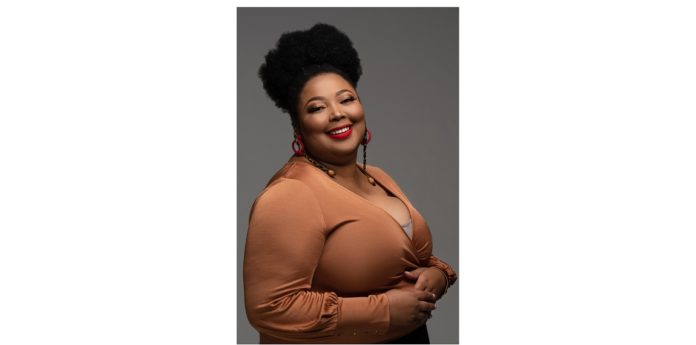I first spoke to Dr Tlaleng Mofokeng last year. She had just launched her book Dr T’s Guide to Sexual And Reproductive Health. And she was busy, scurrying between interviews, talking about the book but still smiling. One year on, when we speak it’s over a Google meet call. In-person interviews are now a rarity. The world has changed. But Dr T, as she is affectionately known, is still busy. She has another call to wrap before our interview. She’s just now added the title of United Nations (UN) special rapporteur on the right to health to her already impressive resume.
Mofokeng is a medical doctor and a sexual and reproductive health and rights consultant. She says it’s difficult to pinpoint when exactly she knew she wanted to work into the medical field. She felt a pull towards medicine, before she knew what doctors do.
Mofokeng was that child that the rest of the children would run to when they got hurt. Armed with her bandages and a pillbox (which her mom filled with Smarties), Mofokeng would be ready to treat them. She grew up in QwaQwa in the Free State with her brothers and mother. Mofokeng had to go to school in Newcastle because there just weren’t good enough opportunities in QwaQwa.
Even in high school, during career counselling sessions, Mofokeng said she didn’t need the advice because she knew: “I just want to be a doctor.”
But dreams don’t come true just because people dream them. She first had to face the anxiety around whether she would get into university and then what it actually meant with all the stress of fees and academic requirements. Mofokeng says she’s had many tough experiences in her life but medical school would probably be listed among her greatest challenges.
Mofokeng got through medical school with hard work and the support of her family. But that doesn’t paint the full picture. There was something else motivating Mofokeng and which continues to motivate her. It’s the idea that all the work and advocacy work she is doing is for herself first.
Her fight for equality and justice in sexual and reproductive health rights is a fight for the issues that affect her personally. Mofokeng says as a young doctor she was surrounded by young women just a few years younger than her. She was acutely aware of how unfair it was that they still had to depend on luck to make decisions about themselves and their bodies. It was those experiences and realisations that shaped the path Mofokeng took with her medical work and activism.
It was the time spent at the clinics that inspired her decision to specialise in sexual and reproductive health. She said it was realising that if the women at the clinics didn’t have access, it would be impacting their entire life. Whether it was women not getting proper contraceptives at the clinic, being stigmatised when reporting a rape case or even not getting medication for menstrual cramps. The issues all related to a bigger notion of a good quality of life.
And though the challenges are many, Mofokeng is motivated.
“This is a fight for our lives. You can’t stop fighting for your own survival. We are not thriving as women, young people, queer people, sex workers and people who are differently abled. There is still a palpable marginalisation,” she says.
She won’t rest until the people she is fighting for are not able to survive but also thrive.
And now she’s going to be able to take her fight to one of the biggest international organisations: the United Nations. It’s also a natural progression from being appointed to the Commission for Gender Equality. Mofokeng says she could only do so much in the consultation rooms with her patients. Advocacy was a way for her to try and effect structural and systemic reform.
“It’s not okay that we have a system that is not accountable to anybody and yet the dire consequences of them failing their mandate has a lifelong impact on people,” she says.
Now South Africa’s beloved Dr T will be taking the important work she does here and making it global. The role for her comes with an understanding of the global connectedness of the marginalisation of people. She takes inspiration from Professor Kimberle Crenshaw and the issues of intersectionality.
“I want us to start thinking of vulnerable people and the vulnerable situations they find themselves in and just because they find themselves in vulnerable situations, it doesn’t make them less worthy of their humanity,” said Mofokeng. She hopes that governments and decision-makers start prioritising all human rights. And it is that work she wants to do with the council in her position as the special rapporteur.
And when Dr T is not out there trying to make the world a better place for herself and for other women and queer people, you can find her watching her new favourite thing: Korean dramas. Mofokeng says during the lockdown she started watching a lot of Netflix like most people and it was the Korean dramas that caught her attention. And honestly, it’s not hard to understand. As Mofokeng says from the culture, the food and the production, she enjoyed everything about them. In case you’re interested, these are just a few that Dr T would recommend: Romance is A Bonus Book, One Spring Night, Crash Landing on You and My Shy Boss.
And watching the Korean dramas isn’t just for fun. It’s also one of the ways for Dr T to ensure she is taking care of herself. She says it’s important that before you take care of anyone else, you take care of yourself because “you’re no good when you are so exhausted yourself.”









